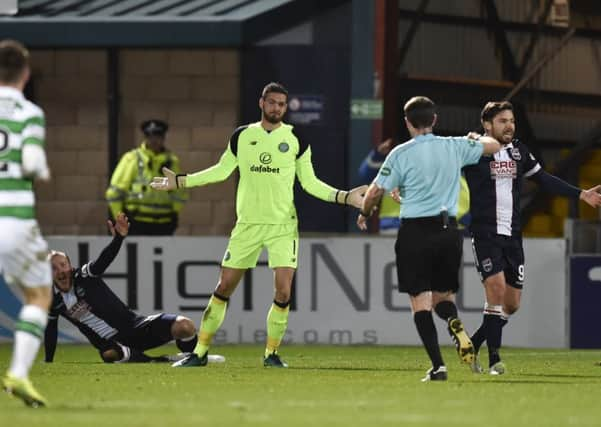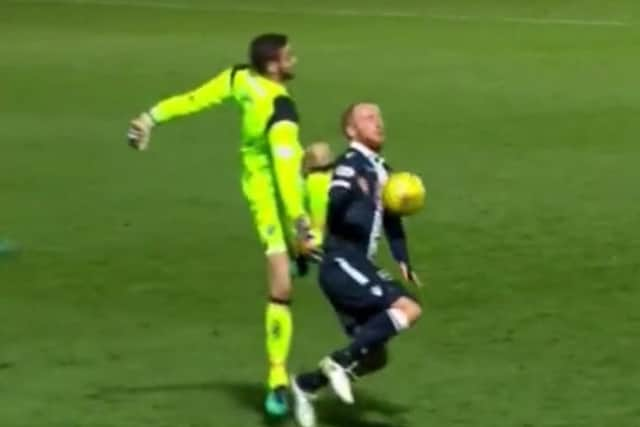Why Craig Gordon wasn't sent off against Ross County
This article contains affiliate links. We may earn a small commission on items purchased through this article, but that does not affect our editorial judgement.


First of all, it’s clearly not denying an obvious goalscoring opportunity. Boyce is going wide and there are defenders back. The fact that it’s the ‘keeper making the challenge doesn’t really change that, even though some fans tend to scream blue murder for a red card whenever a goalkeeper commits a foul outside the penalty area.
Alan Muir, who was the referee when Craig Gordon committed a very similar challenge against Alloa earlier in the season, is not in the greatest of positions to see the foul, being around 25 yards away. This isn’t the whistler’s fault. It’s a long ball in behind and he reacts fairly quickly. There are no players in his line of sight. So, despite the distance, he gets a pretty good look at it.
Advertisement
Hide AdAdvertisement
Hide AdThese sorts of challenges, by goalkeepers using their feet high on opposing players, always look worse than they are. Undoubtedly, it’s a high tackle, but that doesn’t necessarily mean it’s a red card.
He’s got every right to go for the ball. Neither player is in possession and it’s still there to be won - you can even see in Picture One that it’s right there beside the two players when contact is made. He’s not deliberately wiping out an opponent.
A player shouldn’t be challenging a high ball with his feet. These are punishable in the rules, but they are not automatic red cards, even if a foul is granted. They still needs to be committed with excessive force or in a manner that endangers an opponent.
Much of the red card debate in the Alloa game revolved around the Gordon leading with his studs. On this occasion, it’s even less of a red card offence because Gordon realises his error and does his best to pull out of the challenge at the last second. That’s why he leads with his knee. He’s already extended his leg to play the ball, but doesn’t extend his foot out once he realises he’s going to clatter into Liam Boyce. It allows him to slow slightly before making contract with the Ross County attacker. Watch the clip again and just concentrate on Boyce. If Gordon went in full speed and made solid contact, Boyce would have went flying and we’d have a stronger case for a sending off to occur because he’d have used excessive force. He doesn’t. Boyce is merely bumped over. Regardless of what part of the body does it, a “bump” is not worthy of a straight red.
To be worthy of a red Gordon has to be either “lunging” at an opponent, using “excessive force”, or “endangering the safety of an opponent”. That’s what the laws of the game state. He’s definitely not lunging as he tries to withdraw from the challenge. And, as we’ve already stated, it’s not excessive force. That leaves endangering an opponent. People think, because it’s high, he’s automatically endangering an opponent. If you believe that to be the case, that’s fine. The rules are there to be interpreted in different ways. However, he doesn’t make contact with the head or neck of Boyce, he gets him on the shoulder. A bump into the shoulder, even if it is with the knee (and not done deliberately) is not endangering an opponent. Boyce immediately getting up to remonstrate with the official proves that point further. He’s not hurt. Not even slightly.


Gordon could have been sent off for the Alloa foul. In that instance he came in at high speed and Greig Spence, the Alloa attacker, could have been hurt as he fell to ground awkwardly. This time Gordon was more restrained in his challenge, and a booking was fair enough.
• Craig Anderson is a former fully qualified referee. He is also the man behind SPLStats on Twitter.
SEE ALSO


DOWNLOAD THE SCOTSMAN APP ON ITUNES OR GOOGLE PLAY